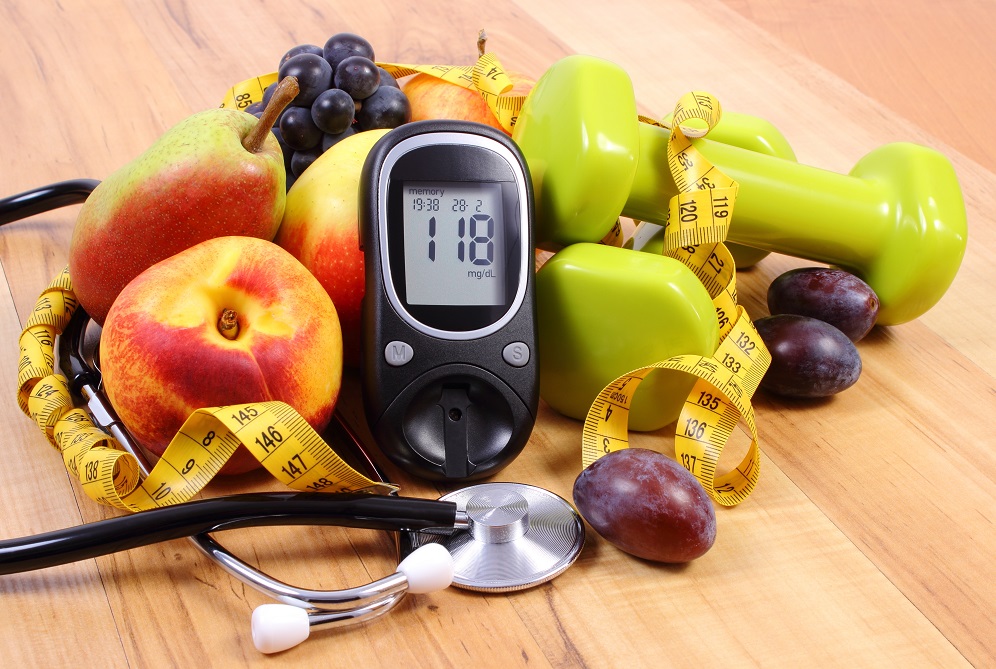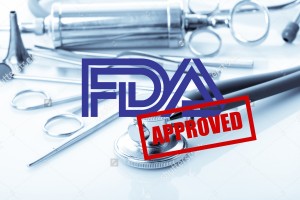Interior Vena Cava Filters: Evidence Supporting Benefits is Thin
Issues Well-Documented
Dodi Froehlich was implanted with an interior vena cava (IVC) filter — a small, spider-shaped medical device designed to stop blood clots from traveling to the heart or lungs — after injuries sustained in a car accident placed her at high risk for clots. Four months later she was in the back of an ambulance, her heart filling with blood and beginning to flat-line.
Continue reading…
How to Cope with Your Child’s Cerebral Palsy
You Are Not Alone

Having a family member with cerebral palsy can be emotionally draining. When a parent is informed that their child has a serious birth defect it can seem difficult to carry on with everyday activities. Not only is it important to attend to the physical and emotional needs of the child but parents must also meet their own. Maintaining employment, friendships, and romantic relationships can become a struggle when we are stressed. In other words, not only is it going to be harder to care for your child – it is going to become increasingly difficult to care for yourself. Most guardians will have a range of emotions to contend with – these can include anger, guilt, and depression. These feelings are valid – you are not a bad person. Continue reading…
What I Wish I Had Known: Inside the Lives of Women Affected by Essure

Side Effects that Interfere with Daily Life
When at 35, Brandy decided that she wanted a longer lasting and hormone free method of contraception, Essure seemed liked the logical choice. Her youngest child had just turned 10, and as a single mom, she did not see more children in her future. So she did what any woman would do and discussed her options during her annual gynecological exam. She ended up with three choices, Essure, an IUD, or a partial hysterectomy. At first, she was leaning towards an IUD, but as three of her friends ended up pregnant while using IUDs, she began to rethink her choice. Continue reading…
Five Things You Probably Don’t Know About PTSD

Like many mental illnesses, PTSD is widely misunderstood. When most people think of the term, they imagine shell-shocked veterans returning from war, traumatized by their experiences. And while this image of veterans battling PTSD is an important one, it is far from the whole truth of this condition. Continue reading…
Medical Marijuana vs. Prescription Medication
“If it was called anything other than marijuana would we have such a problem giving it a try?” Times documented this mother’s demand for answers concerning childhood disease during a discussion on cannabis and pediatrics held by the CU Medical School. The use of marijuana in modern society is taboo. However, if this drug could be harnessed to better treat debilitating diseases than traditional medicine with a lessened risk of drug abuse and addiction, is the risk worth the reward? Continue reading…
After You’re Diagnosed: 7 Steps Toward Taking Control of Your Type 2 Diabetes

If you have recently been diagnosed with Type 2 Diabetes you may still be in a state of shock. Just hearing the words from your doctor’s mouth probably caused your stomach to drop. You may be wondering why this happened to you or what you could have done to prevent it. You may be worried about how it will impact your lifestyle and everyday activities with your family and loved ones and have anger, guilt, sadness, and a myriad of other emotions swirling around in your head making it difficult for you to think clearly. Continue reading…
What to do if You Think Your Psychiatric Medication Should be Recalled
Discontinuing Psychiatric Drugs Carefully
People take psychiatric medications for many different reasons – but usually because it is necessary in order for them to function properly in “daily living”. You may have heard this term before but are not sure what it means. When someone is referring to functioning in “daily living” or in “daily life” they are talking about the everyday stuff that we are expected to do – big and small. These are the things that allow us to fulfill our needs and be a productive member of society. These include bathing and other matters of hygiene, employment, grocery shopping, interacting with other people, and parenting. If you are taking an antidepressant, antipsychotic, mood stabilizer, or other psychiatric medication a medical professional has deemed it necessary. Continue reading…
Common Acid Reducer Medications Tied to Serious Health Issues
Prolonged Use of Proton Pump Inhibitors Increase Risk of Kidney Failure
A recent study has revealed that Nexium (esomeprazole), Prilosec and Prevacid (omeprazole), Aciphex (rabeprazole), and Protonix (pantoprazole) – medications that are commonly prescribed to treat chronic heartburn – are correlated with an increased risk of kidney disease and kidney failure. Not only may they increase your risk for these complications, but an earlier study linked them to an increased risk of heart attack. They are taken to control acid in the stomach and are prescribed to people who suffer from heartburn, acid reflux, gastroesophageal reflux disease (GERD), and ulcers. You are more likely to develop these complications if you take these medications. Continue reading…
How Medical Devices Make It To You

Understanding The FDA Approval Process for Drugs and Medical Devices
We are surrounded. Billboards, full-page magazine ads, and even late night television are rife with advertisements for new and promising medical devices. Medical devices are big business, and the companies that produce these instruments devote tremendous research and resources to testing and research in an attempt to ensure their efficacy. In 2016, the industry, which is comprised of approximately 6,500 companies is expected to comprise a $130 billion market. Continue reading…
Staying Informed: A Quick Guide to Five Popular Antidepressants and Their Side Effects
Antidepressants are some of the most commonly prescribed medications on the market today, with millions of prescriptions filled each year. However, many Americans are not aware of the common side effects of these drugs. Here is a quick explanation of the most likely side effects that you will encounter with five of the most popular antidepressants.
Dangerous Drugs: A Look at Legal Liability for Harm from Pharmaceuticals
Modern medications have improved the quality of life and extended the lifetimes of millions of people in the United States and around the globe. When pharmaceuticals work like they should, they provide immeasurable benefits.
Unfortunately, that’s not always the case. Many prescription and over-the-counter drugs have negative consequences that far outweigh their benefits. In addition to dangerous side effects, some medications contain contaminants that can cause serious illnesses or injuries.
Off-Label Drug Use: What Does It Mean?

Off-label drug use refers to the practice of prescribing medication for purposes, populations, or in doses not approved by the FDA. Although the FDA must clear all new medications in order for them to be marketed, once a drug becomes available it can be used for non-approved reasons, as long as a medical professional determines it to be safe. Drugs may be prescribed for non-approved uses in desperate circumstances and may offer hope where other drugs have failed, or a particular drug may not have been tested in a specific population. Despite the dangerous side effects that may result from off-label drug use, prescribing medications for non-approved reasons is a fairly common practice. According to a 2006 study, 21% of common prescriptions were being taken for reasons not approved by the FDA.
SSRI’s vs CBT for Depression

What is Depression?
Depression is a mental health disorder characterized by extreme feelings of sadness and loss of interest that interfere with a person’s ability to function in daily activities. People who are depressed often have insomnia, loss of appetite, and anxiety, and may or may not be able to maintain employment or care for themselves and their family. Individuals can become depressed for many reasons. Some people experience “situational depression”, depression caused by a specific experience (such as a death of a loved one or loss of employment). Unfortunately, some people experience chronic depression that persists throughout their life. Even when treated, depression can return, along with a relapse in symptoms.
Saxagliptin & Concerns of Heart Failure
Post-marketing drug trials of the diabetes drug Saxagliptin have recently led an FDA panel to vote to require new labeling information, warning of the concerns about heart failure, according to Medpage Today. The decision was based on post-marketing trial involving 16,000 patients.
What’s Your Political Take On Childhood Vaccines?
With all the debate surrounding the vaccination of children, we decided to look into the the issue from a unique angle. Below you will find a short eleven question survey of the major issues surrounding the debate. All responses are collected anonymously via Google Forms, but you will need to be logged into your Google account to see and fill out the survey. We are requiring Google log in to ensure only one response is available per person.
See the Results.
Dr. Who? Which TV Doctor are You?
TV doctors have a wide range of personalities and specialties. Which one are you? Continue reading…
Test Your Brain: Find the brain boosting supplements
Memory loss is something a lot of us will be forced to face as we age. There have been a lot of different supplements and medications to come and go from shelves that claim to help you regain your memory loss. Although boosting cognitive ability is no easy task, there are a few supplements that have seemed to stick around. Can you find them in our puzzle game? They are:
- Ginkgo Biloba
- Omega-3 fatty acid.
- Huperzine A
- Acetyl-L-carnitine
- Vitamin E
- Asian (or Panax) ginseng
Low Risk Medications for Children
As a parent, it is important to know what medications are safe for your child to consume before he or she takes any medication that could potentially do more harm than good. Not all medications are safe for consumption, at any age. There are over-the-counter medications and prescription drugs, which may be fairly safe for an adult to consume, yet present a much higher risk when consumed by a child. In addition, some children may be predisposed to developing an adverse reaction when taking certain types of medications.
Medications Recommended for Children
With so many medications from which to choose, it can be difficult for a parent to know with 100 percent certainty what meds to give their child for the specific ailments he or she may be experiencing. Consulting with your physician before giving your child any type of medication is always advised.
The following are some of the low risk medications for children to consume: Continue reading…
What Type of Medicine are You?
Most Dangerous Meds to Avoid While Pregnant
When a women becomes pregnant, she needs to care for herself, but she needs to care and provide for her unborn child as well. If you are pregnant, you must remember that the over-the-counter (OTC) medications, vitamin supplements and prescription drugs you may have been able to safely consume prior to your pregnancy, may not be safe for you and your baby now.
Certain types of medications and prescription drugs taken during pregnancy can cause birth defects such as heart deformities, spina bifida, cerebral palsy, neural tube defects, brain damage, as well as various other mental and developmental issues. Continue reading…
10 Low Risk Medications to Take When Pregnant
Pregnant women need to exercise caution when it comes to the prescription drugs, over-the-counter (OTC) medications, herbal remedies and vitamin supplements they take when pregnant. While some medications may be necessary as a cold remedy or to address a chronic medical condition, other types of medication can be harmful to you and/or your baby.
If you are pregnant, or planning to become pregnant, it is important you discuss your medical needs and health concerns with your doctor prior to taking any type of medication. Over the past 30 years there has been a 60 percent increase in the use of prescription drugs by pregnant women in their first trimester, according to Drugs.com. As there is a direct correlation between birth defects and the use of medications during the first 12 weeks of pregnancy, it is important for pregnant women to educate themselves on the low risk medications to take during pregnancy.
Over-the-Counter and Prescription Meds
There are no prescription medications or OTC medicines which pregnant women can rely on 100 percent to be safe for themselves and their unborn child. Having said that, the following is a list of 10 low risk medications okay to take when pregnant (at the recommended dosage). But as always, consult a doctor before taking any medication while pregnant, including those listed below. Continue reading…
Need Some Cash? Here’s How People Make Money, With Little Effort, Using the Medical System.
If you are in need of some fast cash, there are legal ways people can make money, with little effort, using the medical system. Quick money does not always need to be associated with illegal activity. Many people are able to make a substantial sum simply by donating a little part of themselves.
Here are some of the most common ways to make money using the medical system: Continue reading…
How to Find the Best Prices for Your Medications
According to the Centers for Disease Control and Prevention (CDC), approximately 48.5 percent of the U.S. population has used at least one prescription drug within the last 30 days. Close to 10 percent of the population has used 5 or more prescription drugs during that same period of time. As some prescriptions can cost as much as a few hundred dollars for each dose, it is no surprise people are struggling to afford the medications they need. Insurance does not cover all types of medications. Even when insurance does offer assistance with co-pays for prescribed meds, it will not necessarily bring the price down to an affordable level.
If you are willing to do a little shopping around, there are ways to get free or extremely low-priced prescriptions. Mobile apps, pharmacy discount cards and coupons are all good tools an individual can use reduce the cost of medications. Continue reading…
Most Commonly Abused Meds By College Students
Prescription drug use has become one of our nation’s fastest growing drug problems, particularly among college students. According to a recent report from the Clinton Foundation, prescription drug use on college campuses across the nation rose significantly between 1993 and 2005. There was a 343 percent increase in the use of Vicodin, Oxycontin, Percocet and other pain-killing opioids, while use of prescription Ritalin, Adderall and other stimulants rose by 93 percent.
Prescription Medications and Painkillers Most Abused on College Campuses
Prescription drugs, when not properly prescribed or taken, can easily become as dangerous as illicit narcotics. This is particularly true when people take more than the recommended dosage, build up a tolerance to its effect or become addicted. Talkaboutrx.org lists the following prescription drugs among those most commonly abused by college students: Continue reading…
Most Influential Athletes Who Have Abused Medications
Professional athletes put their bodies through rigorous activity and stress. As a result, it is not uncommon to see athletes sustaining serious injuries. Even minor injuries sustained by professional athletes can require prescription drugs to minimize pain, reduce swelling and improve recovery time. Athletes who want to improve their performance have many times opted to use steroids or other performance-enhancing drugs, which is against league regulations.
The problem is that using too much of these medications or steroids can easily lead to addiction in any individual, regardless of whether he or she is a professional athlete. Out of all the athletes who have abused medications, steroids or performance-enhancing drugs, here are a few of the most influential: Continue reading…
